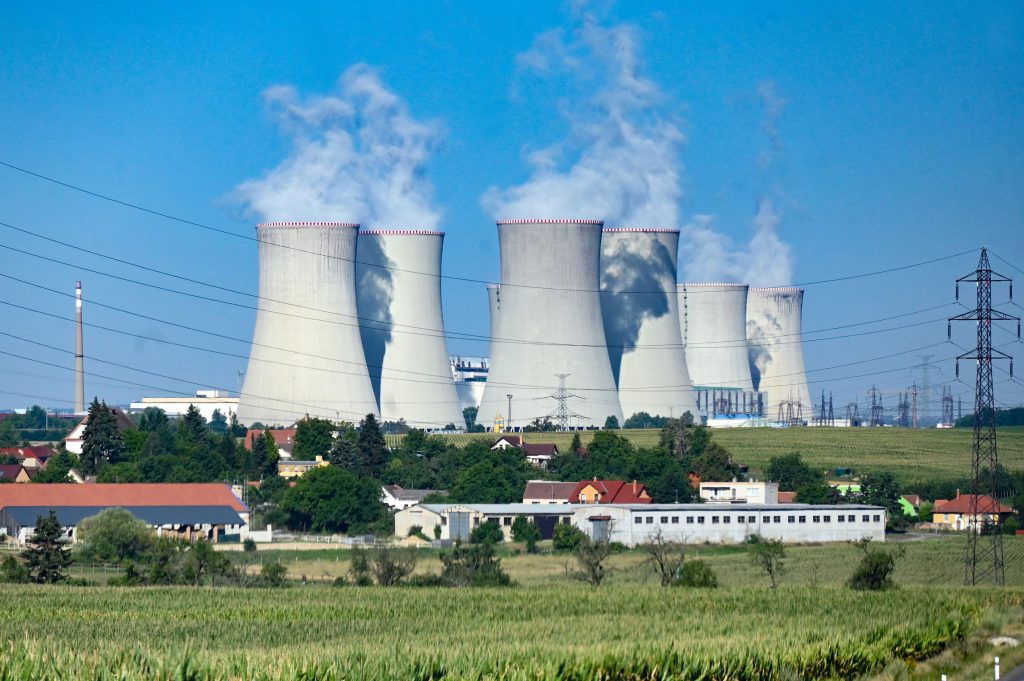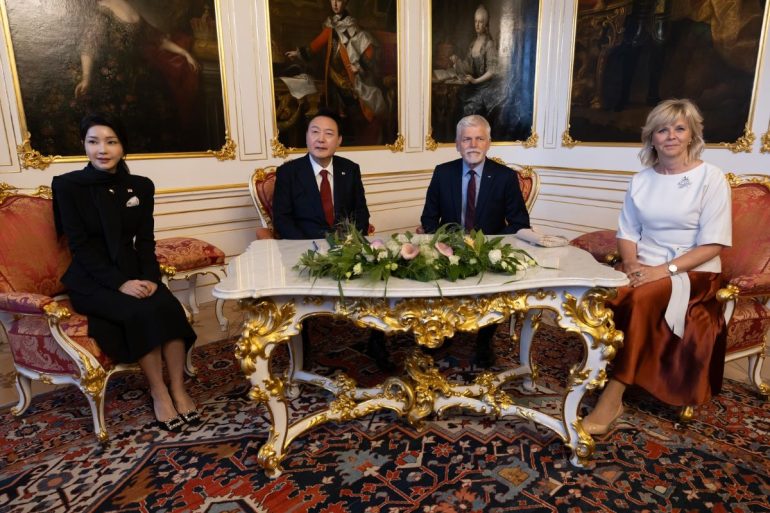The South Korean government will ensure that the process leading to the signing of the contract with KHNP to build new nuclear units at the Dukovany nuclear power plant will be smooth, said South Korean President Yoon Suk Yeol after talks with Czech President Petr Pavel yesterday.
The Korean President arrived in Prague about two months after the Czech government decided that the two new reactors at Dukovany should be built by South Korea’s KHNP.
The Czech power utility CEZ, which operates the power plant, is now negotiating with the Koreans about the contract, which should be signed by April. The first of the new reactors at Dukovany should be ready in 2036.
The U.S. company Westinghouse and the French company EDF, which were also competing for the contract, challenged the tender before the Czech antitrust office UOHS. Westinghouse claims that KHNP does not have a licence agreement to export reactors based on the U.S. group’s technology. The dispute between the two companies is long-standing and is being dealt with by international arbitration.
Yoon Suk Yeol did not rule out that KHNP and Westinghouse could partly cooperate on the Dukovany project, as they did previously in the United Arab Emirates, where Westinghouse was involved in part of KHNP’s contract to build the Barakah nuclear power plant.

Pavel said he believes that the dispute will be resolved. However, he said the Czech Republic is also prepared for the possibility that it will not be.
“The tender is also a huge opportunity for our industry. The high level of involvement of our companies could reach up to 60%, in areas that have high demands on technological development,” the Czech President said.
The Korean President noted that the Czech Republic will be involved in the design phase, and the two countries will cooperate in the development of qualified personnel.
The cost of the currently preferred construction of two reactors at Dukovany is CZK 400 billion at current prices. However, over the next three to five years, according to a government decision, CEZ should also negotiate with the Koreans for an option to build two more units at the Temelin nuclear power plant.
Pavel said it is necessary to wait for the Dukovany contract to be negotiated. If it is successful, the cooperation could be extended to other countries in Europe, he believes.
In addition to nuclear energy, the countries can cooperate in other fields with high added value, according to Pavel. “I would also like to emphasise that in the long term one of the sectors that is not only prestigious but also very promising for us is space research,” he said.







